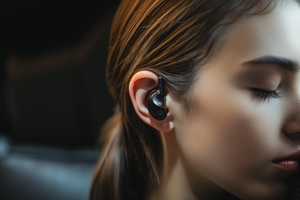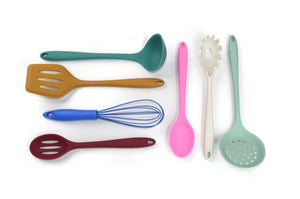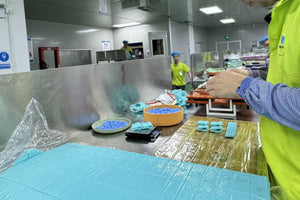Liquid Silicone Rubber (LSR) is one of the most versatile and innovative materials in the world of manufacturing. Widely regarded for its durability, flexibility, and resistance to extreme conditions, LSR has found applications across many industries, from healthcare to automotive to electronics. In this article, we’ll explore what Liquid Silicone Rubber is, how it’s made, and its diverse uses across different sectors.
What is Liquid Silicone Rubber (LSR)?
Liquid Silicone Rubber is a two-component, high-performance silicone material that remains in a liquid state before curing. When mixed with a curing agent, LSR undergoes a chemical reaction that transforms it into a highly elastic, durable, and stable rubber-like material. This unique material is non-toxic, biocompatible, and can withstand extreme temperatures and harsh environments, making it ideal for a wide range of applications.
LSR is particularly favored in industries where high precision, excellent durability, and versatility are required. It’s also prized for its ability to be molded into intricate shapes, which makes it suitable for a variety of custom applications.
Key Properties of Liquid Silicone Rubber
Before we dive into the applications of LSR, it’s important to understand why this material is so special:
-
Thermal Stability: LSR can endure extreme temperatures, typically ranging from -50°C to 250°C (-58°F to 482°F), without degrading. This makes it ideal for applications where other materials might fail, such as in high-temperature environments or in the presence of harsh chemicals.
-
Chemical Resistance: LSR is resistant to a wide range of chemicals, oils, and solvents. This property allows it to perform well in challenging industrial applications where exposure to corrosive substances is a concern.
-
Biocompatibility: LSR is non-toxic and hypoallergenic, making it safe for use in medical and food-related products. Its biocompatibility also allows it to be safely used in devices that come into contact with the human body.
-
Electrical Insulation: LSR is an excellent insulator, making it ideal for use in electronics and electrical components where insulation is required to prevent short circuits or electrical hazards.
-
Flexibility and Durability: Once cured, LSR maintains its flexibility, resilience, and tear resistance. It doesn’t degrade under stress, making it suitable for both dynamic and static applications.
-
Precision Molding: Liquid Silicone Rubber can be injection molded, allowing for the creation of complex shapes and designs with high precision. This is a major advantage in industries that require intricate and detailed components.
Applications of Liquid Silicone Rubber
Given its wide range of impressive properties, Liquid Silicone Rubber is used in various industries for an array of purposes. Let’s take a closer look at some of the most common applications of LSR.
1. Medical Devices and Healthcare
LSR has revolutionized the medical device industry due to its biocompatibility, durability, and sterilization capabilities. It’s used in the production of medical components that must be safe for the human body, easy to sterilize, and able to withstand regular use in high-stress environments.
- Surgical instruments: Handles, grips, and tips of medical instruments.
- Medical seals and gaskets: Ensuring airtight and leak-proof seals for medical equipment.
- Implants: Soft, flexible silicone implants for various medical procedures.
- Wearable devices: Components for wearables such as hearing aids, glucose monitors, or heart rate monitors.
LSR’s ability to withstand autoclaving (high-pressure steam sterilization) makes it ideal for these applications. Additionally, its non-toxic and hypoallergenic nature ensures that it doesn’t cause any adverse reactions when in contact with the body.
2. Food and Beverage Industry
In the food and beverage sector, the safety, ease of cleaning, and flexibility of LSR have made it a popular choice. LSR is used to manufacture components in food processing equipment that come into direct contact with food or beverages.
- Molds for candies and chocolates: LSR’s non-stick properties make it ideal for creating molds for confections.
- Seals and gaskets for food containers: Ensuring airtight seals on food storage and packaging.
- Kitchenware: Flexible, durable tools such as spatulas, baking mats, or oven mitts.
Since LSR is both heat-resistant and non-toxic, it’s able to meet the stringent requirements of the food industry while providing excellent performance over time.
3. Automotive Industry
The automotive industry benefits from LSR’s durability, resistance to high temperatures, and ability to withstand the wear and tear of automotive applications. It’s used to make a variety of components that ensure the safety, performance, and longevity of vehicles.
- Seals and gaskets: Used in engines, exhaust systems, and other parts that require airtight seals.
- O-rings: Prevent leakage in critical systems like brakes, fuel lines, or air conditioning.
- Vibration dampeners: Reducing noise and vibrations for a smoother ride.
LSR’s ability to resist heat and chemical exposure makes it invaluable in automotive environments, where components are subjected to high-stress conditions.
4. Electronics and Electrical
LSR’s insulating properties, combined with its ability to withstand high temperatures, make it a valuable material in the electronics industry. It is commonly used to protect sensitive electrical components from external elements, heat, and moisture.
- Connectors and switches: LSR is often used to mold flexible, waterproof connectors for electrical devices.
- Gaskets and seals: Protecting circuit boards and other electronics from dust, moisture, and contaminants.
- Cable insulation: Offering high-temperature resistance and electrical insulation.
LSR provides excellent protection for sensitive electronics, making it an essential material for creating reliable, durable, and safe products.
5. Consumer Goods and Wearables
The consumer goods industry also benefits from the unique properties of LSR. With its flexibility, biocompatibility, and ease of manufacturing, LSR is used to create soft, comfortable products that are also durable and easy to clean.
- Smartwatches and fitness trackers: Comfortable, skin-friendly straps that can be easily sterilized.
- Toys and baby products: Teething rings, pacifiers, and bottles.
- Personal care items: Products like toothbrushes, facial cleansing brushes, and skincare applicators.
LSR’s flexibility, comfort, and durability have made it a material of choice in consumer goods, especially in products that require direct skin contact.
The Versatility of Liquid Silicone Rubber
Liquid Silicone Rubber is a versatile, high-performance material that excels in a wide range of applications. From medical devices to food packaging, automotive components to consumer goods, LSR’s unique combination of durability, flexibility, heat resistance, and biocompatibility makes it indispensable in industries where precision and reliability are crucial. Its ability to be molded into complex shapes while maintaining superior mechanical properties has solidified LSR’s position as a go-to material for manufacturers around the world.
As industries continue to demand higher performance and more specialized materials, the applications of Liquid Silicone Rubber are only set to expand. Whether you're designing a high-tech wearable, creating medical equipment, or developing automotive components, LSR is a material that offers unmatched performance and versatility.
About Author
We are dedicated to pushing the boundaries of possibility in silicone product manufacturing and our extensive range of inhouse designs and molds across baby, pet, homewares and more allows companies to customize and create products specific for their brand and market needs.
Whether you are looking for a company to bring your ideas and brand to life or looking for ready to go items with packaging and branding, WOLIFE is ready to help your business grow.
WOLIFE looks forward to collaborating with you!


 Using LSR in Hearing Components
Using LSR in Hearing Components Why Silicone Cooking Utensils and Baking Trays Don’t Melt – The Science Explained
Why Silicone Cooking Utensils and Baking Trays Don’t Melt – The Science Explained 10 Creative Products You Didn’t Know Could Be Made with Silicone
10 Creative Products You Didn’t Know Could Be Made with Silicone Common Quality Control Challenges in Silicone Manufacturing
Common Quality Control Challenges in Silicone Manufacturing